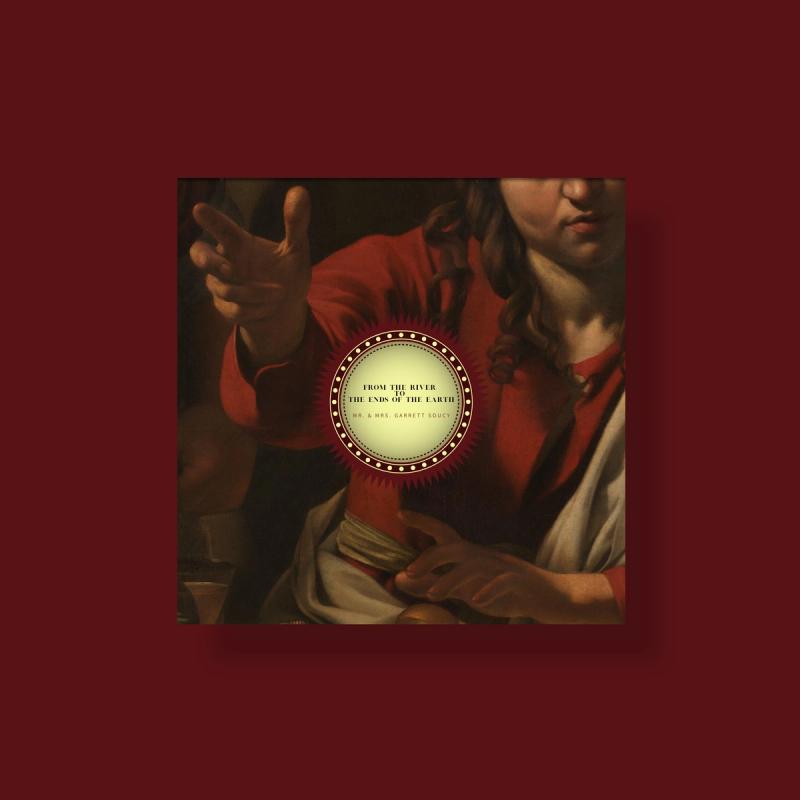Marshall McLuhan warned us that with every extension new media afford us comes an amputation. One of the many amputations that music has undergone since changing its address primarily into the digital realm is the loss of liner notes, held in one’s hand and read while the headphones pulsed. The injury runs far deeper than a simple absence of ink on paper, data points about the production process. The cultural practice of liner notes being included with an album was often a chance for the artist to establish a contextual frame within which the musical piece would be placed: There was a significant event; these are the songs. Ignore the cancer ward of poststructuralism, the critical studies tragedy, and the slough of deconstructionism and we find that meaning has historically been established authoritatively by the author. If any kind of renaissance lay ahead of us, and I believe one does, it must include artists more regularly establishing a commentary of some kind on their work. It’s not enough to despair the loss of meaning. Christians must start cultivating it again. Art should have something to say and the artist should be its Hermes. Liner notes function as a tutor for the listener to better understand what the musician is meaning. This article functions as the liner notes for a new album:
From the River to the Ends of the Earth . . . by Mr. & Mrs. Garrett Soucy
This is a folk album. It’s a folk album by a man and his wife who live in rural Maine, the least churched state in the nation. They live in a small village with their 11 children, one dog, 13 chickens, one goldfish, and two pigs (who have recently moved into the chest freezers). I, Garrett, am the pastor of a small Reformed church that meets at a camp in the woods (because the police were called on them for meeting in person during the pandemic and they had to move). Our church prays for revival, but we have come to believe that a prayer for revival must not be divorced from an understanding that we are praying for reformation and renaissance whenever we pray for revival. Some things will have to be newly born. Some things will have to go back to an older shape. Some things will have to be raised from the dead. I believe the epistemological crisis that has gathered speed since the close of postmodernism is being used by God to answer those prayers in the affirmative. Foundations are shaken so that temporary structures would make way for eternal ones.
This is a newly released folk album. Music should reflect something of the age within which it originates. Good music will include its own age and transcend it. This album centers on three primary themes:
Man and Nature
The human’s natural habitat is nature. Any maturation of a human in relationship with the Lord should include a reorienting of the creature back into a proper context, that of nature. Heroes go home. This is not to suggest that primitive man was pure and progress is corrupt. I’m not Amish. I think tools can be used wisely, including digital ones. Most of the time they are assumed to be neutral and so they aren’t used wisely, especially by Christians. I make a simple assertion: removing an organism from its natural habitat is a way of slowly killing the organism. People should get outside. They should have some kind of habitual correspondence to the seasons and to the pattern of daylight in their region. And then they should go inside and eat food with other humans at a table. Kids should grow up seeing this happen on a regular basis. They should be forced to be a part of it, regardless of whether or not their game is paused. Being human should not be optional.
Gospel and Politics
My first iteration of a political posture was evangelically liberal. This was because the Christian college I attended catechized me properly into assuming that Jesus would vote for the guy selling a milder future. For this reason I was attracted to the Anabaptists. I’m Reformed now, but I’m saddened by the fact that Reformed guys tend to see Anabaptists as theological vegans whose stomachs are too sensitive for anything with blood in it. Not all meekness is weakness. Neither right nor left have been sufficient to handle the complexity of position that the Gospel requires. When it comes to governing people, the options are limited in some crude fashion to either autonomy or theonomy. I’m speaking etymologically. Neither left nor right, even within the Church, have proven themselves capable of greeting foreigners, seeking shelter, with radical hospitality as the strangers we once were, while at the same time demanding conformity to unifying national traits. We run into questions of unity and diversity, of inclusion and transcendence. Left to its own devices, metamodernism will only incite totalitarian structures packed with epistemological uncertainties. The answer is not conservatism. The answer is Trinitarianism.
God, Repentance, and Smallness
Godly sorrow leads to repentance without regret. Practicing the confession of my sins every morning and evening has changed me. My whole life, I’ve done everything I can do to avoid having to decrease. Consequently, I’ve done everything in my power to keep the Lord from increasing. Smallness is not the absence of splendor, which is often what we are looking for in our wrongful pursuits of glory; it’s just a different kind of grandness. If the microscope has taught us anything, it’s that telescopes can only do half the job.
Garrett Soucy is a pastor, teacher, writer, and musician on the coast of Maine, where he lives with his wife and eleven children. His articles have appeared in Forma, Plough, Theopolis, and elsewhere. He’s been called one of the best lyricists working today. You can find out more about the music at www.mrandmrsgarrettsoucy.com.



